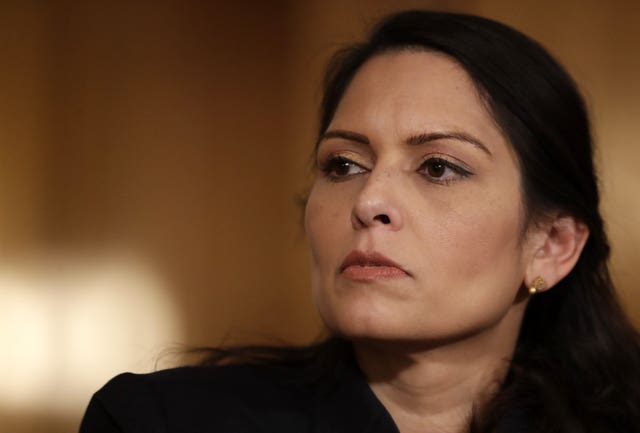
A national strategy focused on collecting more detailed data about child grooming gangs has been launched by the Home Office.
The Tackling Child Sexual Abuse Strategy aims to identify and convict offenders who operate in groups by gathering more information about the characteristics of gangs, including their ethnicity.
This initiative has been welcomed by the NCA, GCHQ, and charity NSPCC who said it received more than 40 calls a day about child sexual abuse since the pandemic began.
This comes after a paper published by the Home Office found that it is difficult to draw conclusions about the ethnicity of offenders because existing data is too limited.
Home Secretary Priti Patel admitted that child sexual abuse survivors have told her they feel “let down by the state”, adding she is “determined to put this right”.
She said: “This first-of-its-kind national strategy will tackle and respond to all forms of child sexual abuse, relentlessly going after abusers, whilst better protecting victims and survivors.
“Crucially, it contains a commitment to collect higher quality data on the characteristics of offenders, so that the Government can build a fuller picture of perpetrators, and tackle the abuse that has blighted many towns and cities across our country.”
The strategy also involves investing in the national child abuse image database to more quickly identify offenders, protecting police from frequently being exposed to indecent images, and enabling parents to ask officers if someone with access to their child is known to them for cases of abuse.
The Government has pledged to support local authorities’ responses to exploitation through funding for The Children’s Society’s Prevention Programme initiative, which has so far trained 13,363 professionals to better spot signs of child abuse.

Through the Online Safety Bill, the Home Office has also said it will ensure technology companies are held accountable for harmful content on their sites.
Marking the launch of the new strategy, safeguarding minister Victoria Atkins spoke virtually with NSPCC staff from Sheffield and Camden on Thursday about their Letting the Future In service which uses therapeutic art to help children move on from abuse.
NSPCC chief executive Sir Peter Wanless welcomed the new strategy but added it “must be backed up with serious investment in support for victims” – and that children are still being exposed to abuse from teachers and social workers.
Sir Peter said: “It’s crucial that no young person is left unprotected which is why it’s disappointing the Government has not committed to closing the legal loophole that enables some adults to abuse their position of power to have sexual contact with 16 and 17 year olds in their care.”
Rob Jones, an NCA director, also welcomed the strategy “at a time when the threat to children is more severe than it has ever been”, adding that last year there were at least 300,000 people posing a sexual threat to children in the UK.
He said police made over 4,760 arrests and more than 6,500 children were protected in six months, and that investigators are focusing on tracking down offenders who operate online.
Mr Jones said: “Many offenders feel they can operate with impunity online, but as we have shown we have enhanced our capabilities and remain committed to tracking them down.
“These are not just images or videos being viewed online.
“What we are uncovering here is evidence of the horrific, real-world sexual abuse of children.”


Comments: Our rules
We want our comments to be a lively and valuable part of our community - a place where readers can debate and engage with the most important local issues. The ability to comment on our stories is a privilege, not a right, however, and that privilege may be withdrawn if it is abused or misused.
Please report any comments that break our rules.
Read the rules here